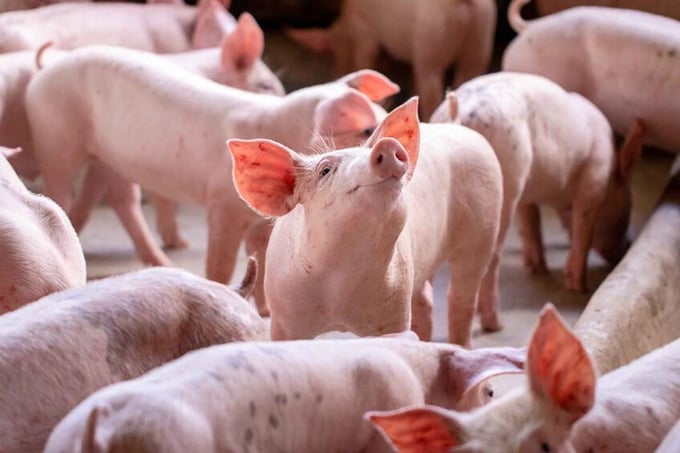June 15, 2025 | 14:06 GMT +7
June 15, 2025 | 14:06 GMT +7
Hotline: 0913.378.918
June 15, 2025 | 14:06 GMT +7
Hotline: 0913.378.918
Although great efforts are being made to control them, these diseases continue to occur periodically in different parts of the world and can have a negative impact in food security and cause human and animal life loss.

Photo: Shutterstock
This is one of the reasons why health authorities around the world are sounding the alarm: although preventing such diseases involves high costs, their consequences are even greater, as demonstrated by the recent foot-and-mouth disease crisis in Indonesia in May 2022, which a year later forced the slaughter of 14,000 animals after 600,000 confirmed cases. Although by December 2023, 26 million doses were administered, the economic effects were devastating, with more than $6 billion in estimated losses.
So it’s important we ask ourselves: What is the best strategy to prevent this from happening again?
One of the leading biotechnology companies in the sector, Biogenesis Bagó, suggests that in order to prevent the spread of diseases it is essential to have an animal health strategy that focuses on four main points that are intrinsically connected:
Biosecurity
Making sure that biosecurity measures on farms such as risk assessment, Isolation, Quarantine, Cleaning & Disinfection are analysed and taken care of is essential to prevent the appearance or spread of diseases.
Diagnosis
Surveillance programmes, monitoring virus circulation in farms, knowing and keeping track of vaccines performance as well as early detection & the correct communication to key actors involved in the animal health strategy are also key.
Prevention
Selecting the correct vaccine to prevent the TADs, keeping in mind, vaccine quality, vaccine safe to be used in all productive and reproductive stages, potency, broad cross-protection, and purity to be able to differentiate vaccinated animals from infected animals.
Training
To make sure that all of the other points can be achieved, having an informed and trained staff is fundamental. Making sure they are aware of the communication processes, health management of the animals and follow good vaccination practices that are key to assuring the correct immunisation level.
Implementing an appropriate animal health strategy with the assistance of veterinarians is crucial for disease control, safeguarding animal health, and maintaining food security, but it is all futile without the coordination of the public and private sectors. This is what can truly allow the success of an animal health strategy, contributing to minimise the economic and productivity losses that can be significant for any business in the sector and to ensure animal welfare, enabling the reduction of any risk of infections.
(PP)

(VAN) Extensive licensing requirements raise concerns about intellectual property theft.

(VAN) As of Friday, a salmonella outbreak linked to a California egg producer had sickened at least 79 people. Of the infected people, 21 hospitalizations were reported, U.S. health officials said.

(VAN) With the war ongoing, many Ukrainian farmers and rural farming families face limited access to their land due to mines and lack the financial resources to purchase needed agricultural inputs.

(VAN) Vikas Rambal has quietly built a $5 billion business empire in manufacturing, property and solar, and catapulted onto the Rich List.

(VAN) Available cropland now at less than five percent, according to latest geospatial assessment from FAO and UNOSAT.

(VAN) Alt Carbon has raised $12 million in a seed round as it plans to scale its carbon dioxide removal work in the South Asian nation.

(VAN) Attempts to bring down the price of the Japanese staple have had little effect amid a cost-of-living crisis.